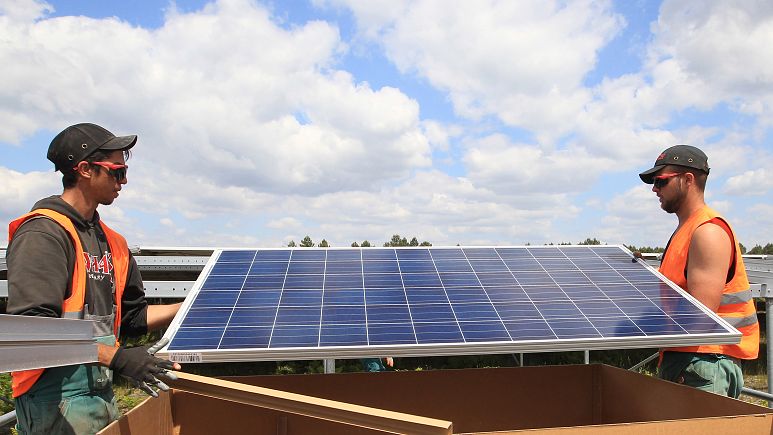Analysis: Does COVID-19 offer an opportunity for a green recovery?

As much of the world literally closed down earlier this year, global carbon emissions plummeted.
In fact, between January and April, they dropped by an unprecedented 8.6 per cent compared to the same period in 2019. By the end of the year, overall emissions are expected to be somewhere between 4-8 per cent below expectations.
This is massively significant: 8 per cent is roughly half of what America emits in an entire year and would be the biggest drop since the Second World War.
We have actually been here before, although to a lesser degree. During the last financial crisis a decade ago, emissions also dropped as economies entered recessions. In 2008/09 they were down by around 1.3 per cent.
However, there are concerns that as economies start to open up and growth returns, any reduction could be wiped out immediately. If we want to meet the Paris Agreement’s most ambitious target of limiting global warming to 1.5 degrees centigrade, we would need to cut emissions by 8 per cent every year for the next decade.
Ensuring a green recovery
Some campaigners and politicians want governments to seize the moment and ensure that the green shoots of recovery are indeed green. They argue that the technology to make that happen is now available. Things have changed quite dramatically in the past 10 years. The cost of producing electricity from solar and wind has plummeted and the cost of making electric cars has also dropped. Politically, we are also in a different place, with many governments - and indeed the EU - committing to a green agenda. And public opinion, at least here in Europe, seems to support tackling climate change. Polls suggest a majority see the ‘climate crisis’ to be just as urgent as the pandemic.
The task facing governments and the European Commission in Brussels, however, is still a mammoth one. How to remove subsidies for carbon-based fuel without harming the recovery? How to encourage more people to think about buying electric cars when they are still expensive? And how much investment is affordable, when budgets are tight, to spend on green research and development?
Eye on the prize
At the moment the focus is clearly on the immediate public health and economic crises, getting businesses open and people back to work. And not all the news is good news for green campaigners. We are seeing coal-fired power stations opening in China, while President Trump is relaxing regulations for the coal and oil industries. But elsewhere there are positive signs. France, in bailing out Air France, insisted that internal flights should be limited if the train is an option, and the United Kingdom has announced a big rollout of charging points for electric cars across the country.
This pandemic is far from over and it has already cost hundreds of thousands of lives. But humanity has survived pandemics before. Within a couple of years, a cure will hopefully be found or we will at least be able to manage the disease. The climate change battle is, however, a bigger challenge - one measured in decades. The hope for some is that there is now that opportunity to change course with a green recovery. And with a potent mix of technology and public and political will it might just happen.
Darren McCaffrey is Euronews' political editor.